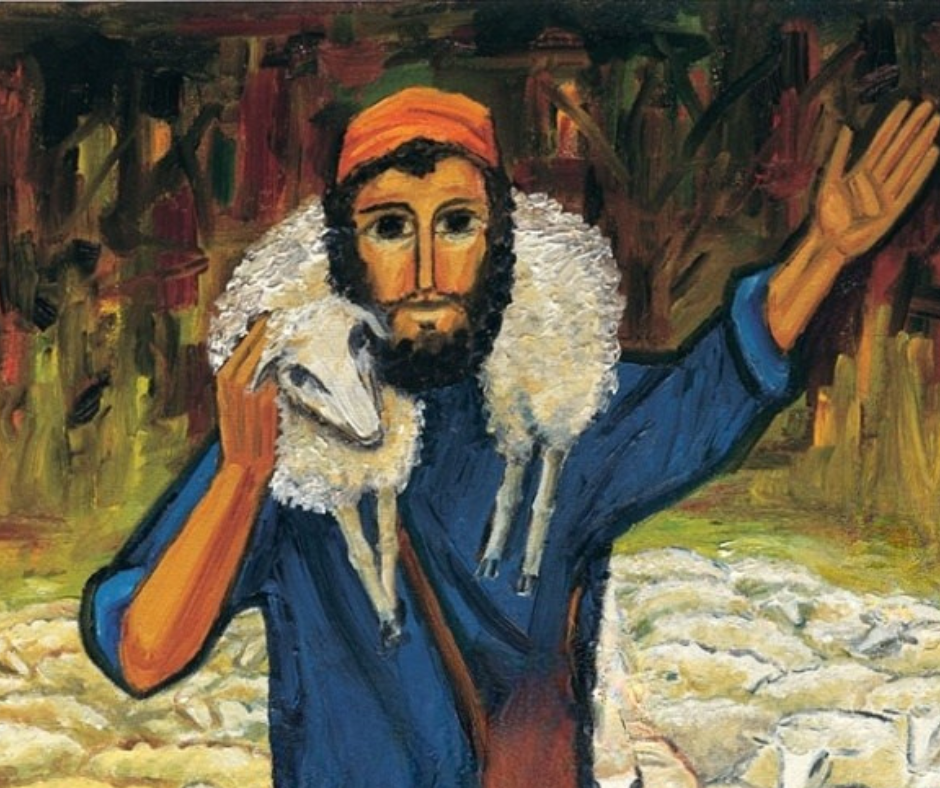by Cath Mahoney, member of the church community at Holy Rosary Church, part of the Leeds Cathedral parish
Fr Luis Orlando is a Mexican Jesuit priest who gave the Romero lecture in Leeds, entitled ‘Excavating Hope’.
He started by telling us about the day he went into the Jesuit Noviciate in Mexico and was confronted by a series of photographs of Archbishop Oscar Romero, the 6 Jesuit priests and the 2 women who were murdered by the Salvadoran army at the university in San Salvador in the 1980s and others who had been murdered because of their stand for justice. They were all martyred. For him, this was a very striking and sobering realisation. The context in Mexico is one where organised criminal gangs operate drugs smuggling and human trafficking and where gang related murders are commonplace.
‘The images of these witnesses have accompanied me for almost 20 years. In the picture of Monsignor Romero, I read the powerful words: “If they kill me, I will rise again in the people.” For a novice striving to follow in the footsteps of Jesus from Galilee, grasping that this journey may lead to sacrifice is a daunting challenge. Initially, I sought to evade the weight of that phrase, as if I could ignore its significance. But then, something profound shifted within me: “If they kill me, I will rise again in the people.”
What inspired me, in what direction? Why didn’t I return home? What compelled me to remain in a place filled with images of those who had been slain by the military amid injustice and inequality? My answer today is hope. I stayed because I felt hope. I was moved toward hope and by hope.’

Fr Luis spoke about his support for the movement of Mexican women who are searching for the bodies of their ‘disappeared’ children (almost all sons). They search for places where bodies have been buried, and excavate these graves to find and identify the human remains in the hope that they can be returned to their loved ones for a respectful funeral and a known resting place. The women literally excavate ‘hope’.
He communicated and shared his admiration and respect for these ordinary women and their extraordinary courage and commitment in the face of the loss of their children. The mothers find their courage and hope in the support and solidarity that they experience from and with other mothers. They have formed strong networks across Mexico, sharing information and intelligence through WhatsApp groups. Local groups of women meet and talk, sing and pray together, their faith sustaining them for their work.
Fr Luis said that the women are especially devoted to Our Lady of Guadeloupe. “La Salve,” known in English as “The Hail Holy Queen,” carries profound meaning. The Spanish version contains enriched phrases that add depth to the original text. The prayer beautifully expresses:
“Hail, Queen and Mother, Mother of mercy, life, sweetness, and our hope,
our life, our sweetness, and our hope;
Hail God.
To You do we, the banished sons of Eve, cry out;
to You do we sigh, groaning and weeping
in this vale of tears.
Therefore, O Lady, our advocate,
turn to us those merciful eyes of Yours,
and after this exile, show us Jesus,
the blessed fruit of your womb.
O clement, O merciful, O sweet Virgin Mary!
Pray for us, Holy Mother of God.
That we may be worthy to attain
the promises of our Lord Jesus Christ. Amen.”
A representative of the women met Pope Francis in Rome and this encounter highlighted their work to the Mexican Bishops.

The mothers are searching for ‘ the lost sheep’ that Jesus spoke about in the parable and Fr Luis hears the people as God’s voice and sees God at work through these women.
‘One of the remarkable leaders of this movement is Doña María Herrera, a devoted mother of four children who have disappeared. For Doña Mari, the search for the missing starts with God, whom she sees as the first to seek out those who are lost. She likens God to the Good Shepherd, tirelessly searching for the literally lost sheep. She once shared, “God goes out to search. He doesn’t know where to go, but he goes.” This profound belief inspires her to look for her children. She has even founded a national network of women’s groups committed to finding their loved ones.’

I was left full of admiration and sorrow for these women, but wondering what hope there is for a Mexico (and wider world) where violence is not the only occupation open to young men and where mothers are not driven to dig the earth to find their murdered sons.
Read the full text of Excavating Hope by Luis Orlando Pérez Jiménez, S.J.
